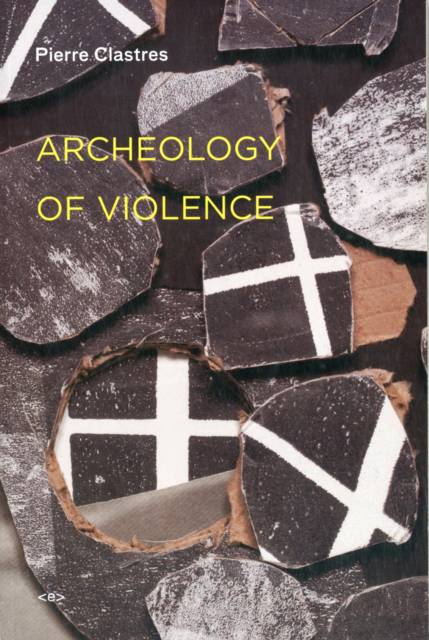
- Afhalen na 1 uur in een winkel met voorraad
- In januari gratis thuislevering in België
- Ruim aanbod met 7 miljoen producten
- Afhalen na 1 uur in een winkel met voorraad
- In januari gratis thuislevering in België
- Ruim aanbod met 7 miljoen producten
Omschrijving
The war machine is the motor of the social machine; the primitive social being relies entirely on war, primitive society cannot survive without war. The more war there is, the less unification there is, and the best enemy of the State is war. Primitive society is society against the State in that it is society-for-war.--from the Archeology of Violence
Anthropologist and ethnographer Pierre Clastres was a major influence on Gilles Deleuze and Félix Guattari's Anti-Oedipus, and his writings formed an essential chapter in the discipline of political anthropology. The posthumous publication in French of Archeology of Violence in 1980 gathered together Clastres's final groundbreaking essays and the opening chapters of the book he had begun before his death in 1977 at the age of 43. Elaborating upon the conclusions of such earlier works as Society Against the State, in these essays Clastres critiques his former mentor, Claude Lévi-Strauss, and devastatingly rejects the orthodoxy of Marxist anthropology and other Western interpretive models of "primitive societies." Discarding the traditional anthropological understanding of war among South American Indians as arising from a scarcity of resources, Clastres instead identifies violence among these peoples as a deliberate means to territorial segmentation and the avoidance of a State formation. In their refusal to separate the political from the social, and in their careful control of their tribal chiefs--who are rendered weak so as to remain dependent on the communities they represent--the "savages" Clastres presents prove to be shrewd political minds who resist in advance any attempt at "globalization."The essays in this, Clastres's final book, cover subjects ranging from ethnocide and shamanism to "primitive" power and economy, and are as vibrant and engaging as they were thirty years ago. This new edition--which includes an introduction by Eduardo Viverios de Castro--holds even more relevance for readers in today's an era of malaise and globalization.
Specificaties
Betrokkenen
- Auteur(s):
- Vertaler(s):
- Uitgeverij:
Inhoud
- Aantal bladzijden:
- 336
- Taal:
- Engels
- Reeks:
Eigenschappen
- Productcode (EAN):
- 9781584350934
- Verschijningsdatum:
- 30/09/2010
- Uitvoering:
- Paperback
- Formaat:
- Trade paperback (VS)
- Afmetingen:
- 155 mm x 228 mm
- Gewicht:
- 498 g

Alleen bij Standaard Boekhandel
Beoordelingen
We publiceren alleen reviews die voldoen aan de voorwaarden voor reviews. Bekijk onze voorwaarden voor reviews.









